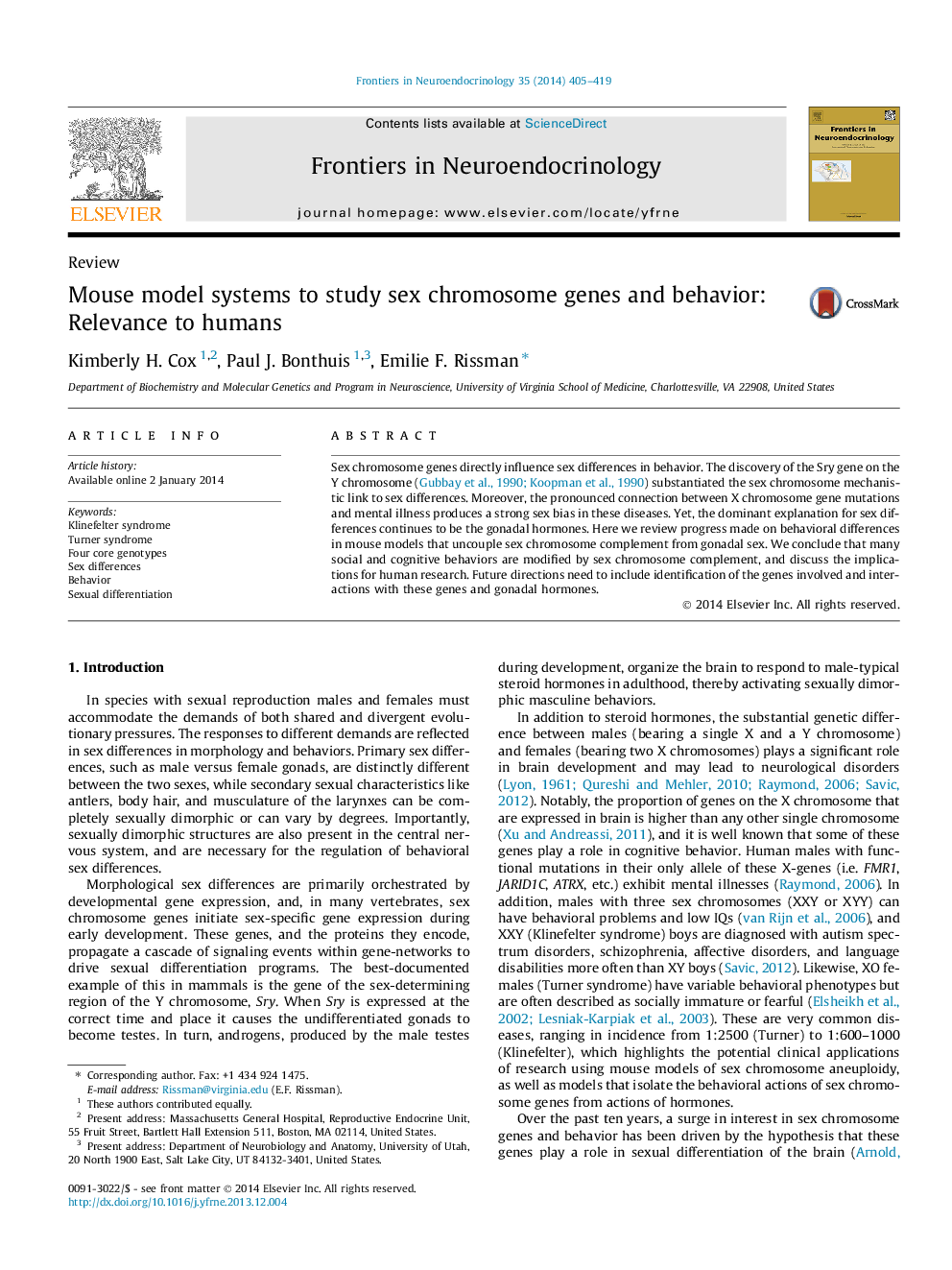| Article ID | Journal | Published Year | Pages | File Type |
|---|---|---|---|---|
| 2799308 | Frontiers in Neuroendocrinology | 2014 | 15 Pages |
•Mouse models with sex chromosome aneuploidy are reviewed.•Social and other behaviors correlate with sex chromosome compositions.•Implications for humans with similar sex chromosome conditions are suggested.
Sex chromosome genes directly influence sex differences in behavior. The discovery of the Sry gene on the Y chromosome (Gubbay et al., 1990 and Koopman et al., 1990) substantiated the sex chromosome mechanistic link to sex differences. Moreover, the pronounced connection between X chromosome gene mutations and mental illness produces a strong sex bias in these diseases. Yet, the dominant explanation for sex differences continues to be the gonadal hormones. Here we review progress made on behavioral differences in mouse models that uncouple sex chromosome complement from gonadal sex. We conclude that many social and cognitive behaviors are modified by sex chromosome complement, and discuss the implications for human research. Future directions need to include identification of the genes involved and interactions with these genes and gonadal hormones.
